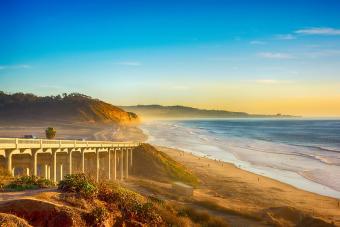
You are probably familiar with camping and all that it entails, even if you're not particularly outdoorsy. But you'd be hard-pressed to find many people who have heard about boat camping or gone boat camping themselves. An interesting mixture of primitive camping and traveling on the water, boat camping can give you an entirely new perspective on the world around you. Yet, to make your boating adventure the best one possible, check out seasoned boater Janet Groene's expert advice with these carefully curated tips and tricks.
What Makes Boat Camping Unique?
Boat camping isn't limited to boats that have designated sleeping quarters on board. In fact, boat camping can extend to locations where you boat-in to reach a site, dock your boat, or camp on the shore. Interestingly, Groene explains that some campers even set up their campsites directly on their canoes, kayaks, rafts, and ski boats.
"If the boat is very light, it can be combined with a tent or tarp, and it becomes part of the shelter," she said.
Similarly, being on the water at nightfall and daybreak will give you a front-row-seat to nature's most bustling time. You can experience nature and wildlife up close, in an intimate manner.
"Nature is at its most active in the early morning and at twilight," Groene said. "If you are prepared for overnighting with your boat, you'll see and hear things that day boaters never do: a deer comes to the water's edge to drink; an eagle swoops down and grabs a fish in its talons; a raccoon rattles by to wash its oyster meal before eating it. Be lulled to sleep by the chuckle of water lapping at the shore and wake up to bird calls that begin just before first light."
In much the same way that camping can connect you with the natural world, so too can boat camping in its own way.
Is It Legal to Go Boat Camping?
Given that boat camping involves staying near or on a waterway, governmental regulation and an area's rules can be difficult for boat campers to parse out. However, if you explore government or state parks and waterways, you can often find legal boat camping opportunities that come at a small nightly fee.
"Most boat camping is…unofficial," she said. "If you want to be official about it, check out the many state and national parks, and scenic waterways, that offer campsites reached only by boat...Don't trespass. Get local advice so you are aware of local hazards such as gators, snakes, or deer ticks. Be aware of the water's own hazards so you don't get stranded by tides or caught in an unexpected current. Have a Plan A, and also Plans B and C."
Check that the waterway you are traveling on is legally navigable, and verify that shore locations are not privately owned. Apps such as OnX's Backcountry app and U.S. Public Lands app can help you verify public land status, and both have offline modes. If you're being sensible and paying attention to any no-trespassing signs, you should be able to establish a camp without many problems, Groene stated.

How to Prep for Boat Camping
Getting ready to go boat camping can be different from packing for a stay at a regular campsite. The first important thing to note is that your gear is going to change depending on the type of boat you're using, whether you have sleeping arrangements within the boat, and if you plan on staying at your campsite or on your boat overnight. From Groene's experience, some of the universal items that you need to pack include:
- Shelter
- Camp-stove
- A pot or two
- Flashlights
- Maps
- First aid supplies
- Eating utensils
- Drinking water
- Sunscreen and sun protection
Create and Distribute a Float Plan
A float plan is a documented compilation of your route of travel. This includes the direction that you're heading and how long you anticipate being in each location that you stop at. More important than creating the float plan is designating someone not on the trip to be in charge of keeping up with your progress. If you miss a check in, or fail to return at the designated time, the person you gave your float plan to can alert authorities. In much the same way that the buddy system has effectively protected hikers and backpackers, so too can having someone on the outside be ready to call in for assistance if something were to go wrong during your trip.
Important Things to Keep In Mind
There are a lot of things to consider when planning for a boat camping trip when you're just starting out.
- Utilize All of Your Space - Space is at a premium aboard a boat. "Make every ounce…[and] every cubic inch count," Groene said. "[Prepare yourself for] both boating and camping in the waters, weather, and terrain [of] where you're going."
- Get Ready for Isolation - Boating isn't a particularly social activity, and boat camping in particular isn't meant to inspire grand get-togethers with your fellow campers. "It's for people who want to get away from marinas and campgrounds," Groene said.
- Pack Enough Food and Water - While fishing and foraging for food may be an option if it is legal where you are traveling and you are properly licensed, it is best to be prepared. "Keep one step ahead of your food and water needs," Groene said. "Fish and forage all you like, but don't rely on nature's pantry."

When Camping and the Open Seas Collide
Boat camping sounds like a fantastical activity out of the reach for average people. However, as with many outdoor hobbies, all it takes is a little practice and a lot of preparation, and you'll be camping on the high seas or secluded waterways in no-time.







